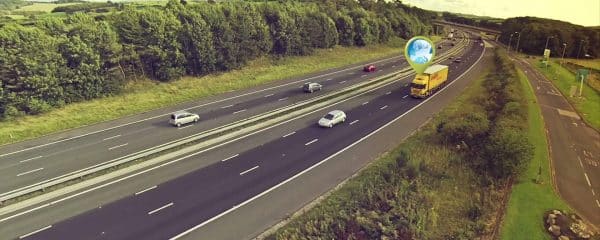In this blog we explore some of these drivers of change and what, specifically, they may mean for today’s fleet manager.
1) Financial Pressures
The fleet can be one of the most significant costs to an organisation and fleet managers today are often finding themselves being asked to meet tough challenges by their CFOs.
There are ways to deal with this, however, with Christ Stone at SGN blazing a trail by carrying out an extensive driver performance program.
He said, “at SGN, our finance team carries out commercial business decisions, complex tax calculations, financial negotiations, procurement and data analysis on a daily basis. It makes sense for us to include fleet data in our analysis to help make decisions around types of vehicle procured, fuel card tenders etc.
With our finance team working hand-in-hand with our experienced fleet team, we can better utilise the unique skill sets of each team to ensure we provide an even more efficient fleet management service to our business.”
SGN managed to save £1m this way. Something for other fleet managers to take note of.
2) The Need For Green
Pursuing green technologies and approaches to fleet management has become a business necessity as much as a moral one. Sustainability is at the forefront of government minds and finding ways to operate fleets in as eco-friendly a way as possibly is a non-negotiable. Customers often see a company’s attitude to the environment as a key factor in purchase decision-making.
Today, a fleet manager has to bear green considerations in mind particularly when procuring new vehicles and considering new technologies. Low-emission, efficient vehicles which lower the organisation’s car tax bill are a must, and new fuel-saving technologies such as the OptiDrive 360 can make it easier for drivers to drive in an environmentally-friendly way and reduce the maintenance bill on vehicles.
The EU, placing high importance on making transfer of goods more eco-friendly, is partnering with top brands to find ways to reduce emissions and fuel consumption. Now, all major industry players now fully recognise the need for green: from TomTom, to BMW Group, and any modern fleet manager needs to be ready to adapt to thrive.
3) Risk Reduction
Drivers, and mobile workers in general, now have the same Health and Safety rights as any other ordinary employee. This, coupled with a gradual but distinct increase in legislation governing how fleets operate, complicates the job of the fleet manager.
It’s not enough to just make sure all drivers have full and clean licenses, and that their vehicles are properly MOT’d. Under the Health and Safety at Work Act and the Corporate Manslaughter and Corporate Homicde Act, companies are liable for significant sanctions for any breaches. Today, organisations must look carefully at their policies, systems, technology and modus operandi in order to ensure compliance and much of those responsibilities fall to the fleet manager.
Some steps that fleet managers are taking are ensuring processes for vehicle safety checks are up to date and adhered to, keeping a careful reign on driver hours and using the latest technology to optimise drive behaviour. It’s important to liaise with HR departments where required to manage these risks, but much of the onus does now ultimately fall on the fleet manager.
4) Widening Skill-sets
There is a rising requirement for fleet managers today to try to widen their skill-sets where possible. They are increasingly expected to tackle the mobility of a business in general, which includes employee travel by any means, and not just the fleet of vehicles.
In order to avoid being absorbed into other departments, fleet managers should consider expanding their remit to include considering the full cost of employee mobility – from mode of transportation to accommodation, connecting fleet with travel.
But it’s also important to see this as an opportunity, not just a challenge. This is a chance for fleet managers to truly cement themselves in the decision-making core of the business by taking ownership of the cost and logistics of all business mobility.
5) Changing Technology
It’s a stereotype to say that technology is changing faster than ever; it’s basically true at any point in human history. But recent developments in fleet management technology in particular are potentially transformative.
There are now ways of monitoring and controlling business fleets that were unimaginable a decade ago. The vast amount of data available through telematics means fleet managers can have a huge amount of control over the performance of their fleets – vehicle driving styles, precise locations and schedules can be managed dynamically. Driver routes can be selected to maximise efficiency and exact mileage and driving hours recorded automatically.
Advanced behavioural data collection and vehicle diagnostics are now availably, which are invaluable weapons in the modern fleet manager’s arsenal. Benchmarking, reporting and productivity improvement can now be managed with hitherto unachievable accuracy.
What’s more, health and safety compliance can now be enhanced dramatically and risks reduced.
A modern fleet manager needs to get to grips with the latest technology available and see it as a huge opportunity. Indeed, more than a challenge it is a way to more effectively address the other four challenges we have listed in this blog.
If you’d like to know more about how technology can help you manage the challenges facing you today, get in touch to find out about our range of state-of-the-art telematics products.










